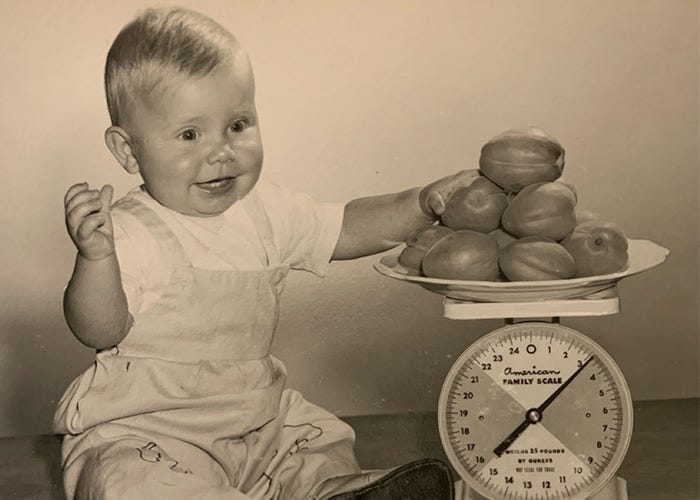A Teacher's Champion
The Things You Learn Running a Junior High Classroom for 34 Years
Here in Philadelphia, we are almost back to school. For many across the country, you’re already there. Fortunately, several weeks ago, one of your fellow subscribers, junior high school librarian Kim Spradlin, reached out to suggest a profile about her wife, who had recently retired from the classroom and a 16-year tenure as a teachers’ union president. I love a good “pitch,” and Tammy Grubb’s story resonated, particularly as we face a shortage of teachers across the country.
In the spirit of new school years, let me launch into this profile with a speech that Tammy gave a few years ago to her fellow teachers, heralding in “Another start, another Opening Day.” If you read no further, you’ll have come away with a sense of who she is and her workcraft!
I always enjoy so much seeing your faces today. On one hand, you look so happy, excited to be starting another year, meeting up with friends… On the other hand, at the corners of a few eyes out there I can detect a slight sense of dread; that you haven’t had enough coffee yet…
I have to admit that I bounce back and forth between the excitement and the dread. Every year. It is sort of maddening, that jumping between a wonderful lightness across to the sobering heaviness.
But that is what this job gives to us. It is Yin and Yang, the light and the dark, measures of hope sometimes tinged with despair.
And what about our students? They, too, are feeling this. Hope. Some despair. Light and dark. Sometimes, more than the content we teach, this is where we focus our energy - finding ways to give hope, helping to provide some armor against despair. I’m reminded of a quote by Maya Angelou:
“Do the best you can until you know better. Then, when you know better, do better.”
Maya Angelou was a remarkable woman. She wrote beautiful poetry, taught school, and, like many of our students, experienced a difficult childhood. I first read her autobiography I Know Why the Caged Bird Sings in college; it is full of joy, sorrow, wisdom, and insight. If you haven’t read it, you should. Every one of you. I am serious. There will be a test . . .
Several parts of the novel resonated with me. In one chapter, Maya falls in love with pineapple rings canned in heavy syrup. I, too, fell in love with the same when I was about 10. Sweet, exotic, so unbelievably good. For a farm kid on Wenatchee Heights, just like for Maya Angelou in Stamps, Arkansas, those delicious golden rings represented an unknown, exciting world.
Another part of her story is about Mrs. Flowers, a kind and genteel neighbor who represents everything that Maya hopes to be, but can’t seem to realize. With some help from Maya’s grandmother, Mrs. Flowers takes Maya under her wing, showing her a world beyond the hard scrabble of her segregated life, showing her that she matters, that someone cares about her for herself, as herself. She gave Maya books and expected them to be read - out loud. She made cookies and lemonade to share expressly with Maya, personal attention that amazed the young girl. To her, Mrs. Flowers was “the measure of what a human being could be.”
When I look back on my childhood, I had several “Mrs. Flowers” - teachers, coaches, even neighbors who made me feel noticed and valued just for being, people who became models, patterns, that mysterious measure of how to be. I am guessing you all experienced this, too.
We all have the chance to open up the wide world, to be that measure of what a human can be to the students we come in contact with every day.
For many, this is the greatest gift we can give, to see them as the individuals they are, to help them do the best that they can, to give them chances to grow and stumble, and grow some more, to be better. If we, like Mrs. Flowers, can build relationships, help foster a positive environment for our students, then they will grow stronger, more willing to work through setbacks.
We want our students to do exactly this – to do the best they can until they know better. It is our task to help get them there, and it is not simply about content, nor is it simply about test scores. We want them to be brave, to be kind, to be resilient, to be true . . .
“Do the best you can until you know better. Then, when you know better, do better.”
And we must take this to heart, too. With the pressures and stresses we each face, we all do the best we can. We must not be afraid to seek out what is better and then do it. It might not be easy, and we may stumble as we learn, but we, too, will become braver, kinder, more resilient, more true.
Tammy Grubb was born and raised in Wenatchee, Washington. Known as the “Apple Capital of the World,” the town is located 150 miles east of Seattle and sits at the foothills of the Cascades. She grew up on a 70-acre fruit ranch that her parents owned and ran. From her earliest days, Tammy worked in the orchards, picking cherries and apples, as did her three older siblings when they were young. Amongst her family, if one did not go into the orchard business, education was the other likely path. Tammy chose the latter, and after graduating from Eastern Washington University, she sought her first teaching job.
Keep reading with a 7-day free trial
Subscribe to Work/Craft/Life to keep reading this post and get 7 days of free access to the full post archives.



